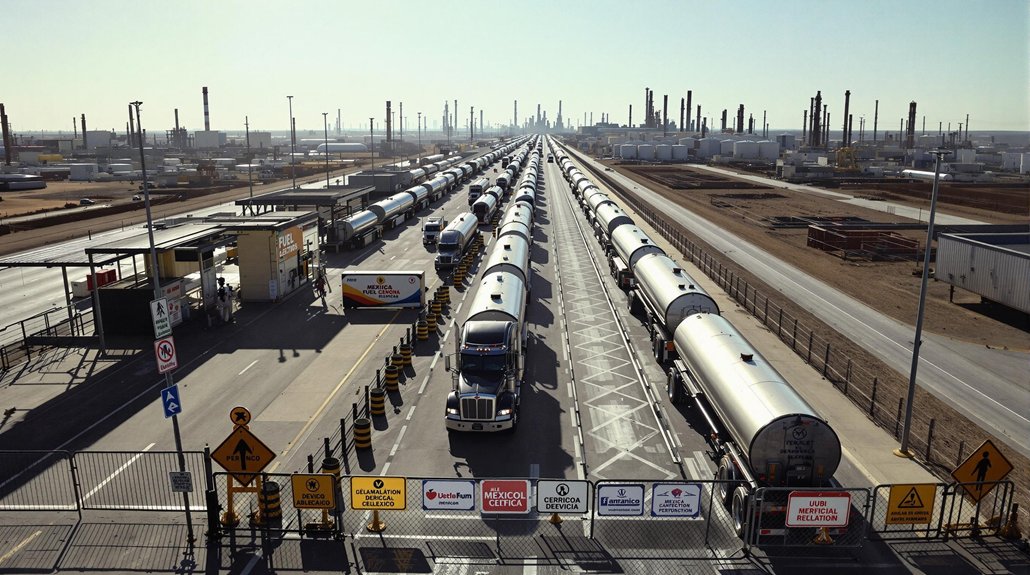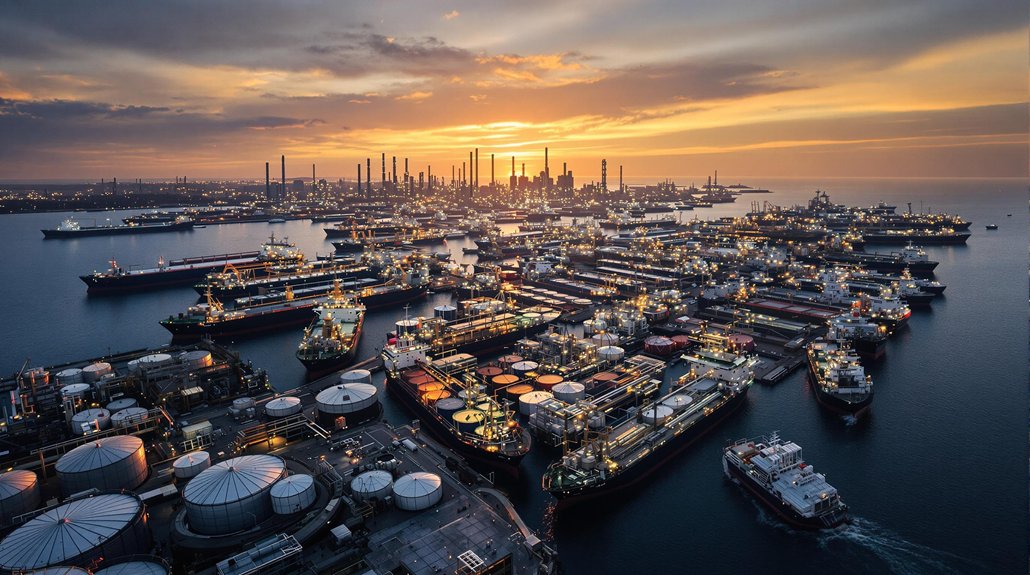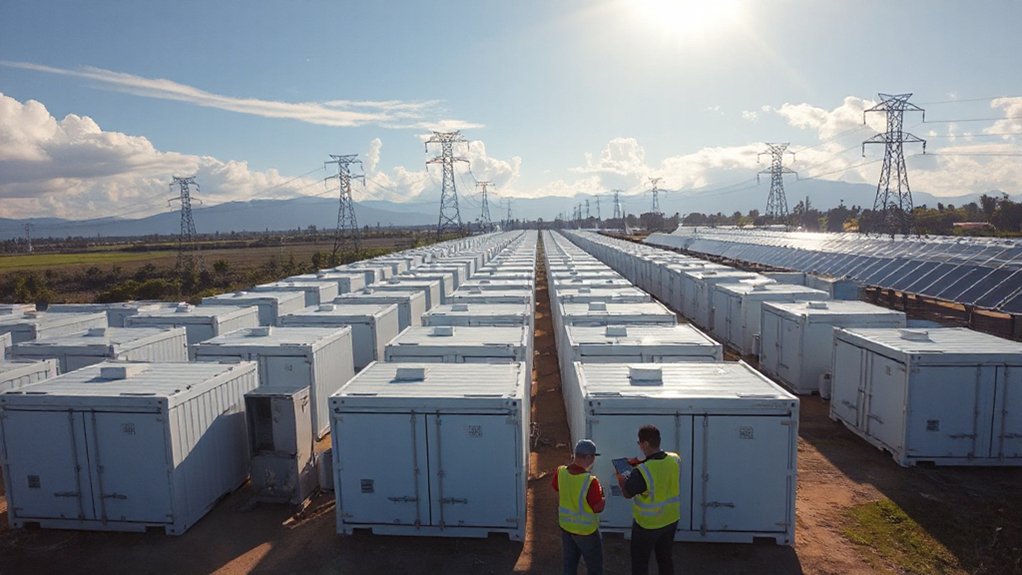Mexico has halted U.S. fuel imports by truck at the Texas border as part of a crackdown on illegal fuel trading. This suspension affects a vital supply chain, as Mexico is the largest buyer of American fuel. The country’s limited refining capacity makes these imports essential for its economy. Energy companies now face potential cost increases and supply uncertainties. Northern Mexican businesses and consumers might soon feel the impact through higher prices and possible shortages. What will this mean for both nations’ energy relationship?
While seeking to combat illegal fuel trading, Mexican authorities have suspended U.S. fuel imports by truck at the Texas-Mexico border. The suspension is part of a major crackdown as Mexico reviews import permits and increases inspections of gasoline and diesel shipments from the U.S. Gulf Coast.
The halt affects only truck shipments, with rail and maritime deliveries continuing as normal. Neither the Mexican government nor Pemex, Mexico’s state oil company, has offered official comment or a timeline for lifting the freeze. This comes after a law was passed in Mexico to combat illegal fuel trade by 2023.
Mexico is the largest buyer of U.S. fuel exports, importing about 35.66 million barrels per day in January 2025. The country relies heavily on these imports due to its limited refining capacity. The suspension threatens supply stability for sectors that depend on trucked fuel deliveries. Inefficiency in refining heavy Maya crude at Pemex facilities further compounds Mexico’s dependence on U.S. fuel imports.
The crackdown follows rising concerns about smuggling and illegal fuel trade. In March 2025, authorities seized a vessel carrying 10 million liters of diesel in Tamaulipas, along with nearly 200 containers and vehicles. Another operation in Baja California led to the confiscation of 8 million liters of hydrocarbons and transport equipment.
These actions are part of a wider border security strategy. The U.S. recently dedicated 110,000 acres of land to military support for anti-immigration and anti-smuggling efforts. Cross-border commercial activities now face increased scrutiny and regulatory hurdles.
The suspension could strain fuel supplies for businesses in northern Mexico and other areas that rely on truck deliveries. Energy importers may face higher costs and uncertainty due to supply chain disruptions. Rail and maritime routes might see increased demand, potentially causing congestion.
If the halt continues, it could affect gasoline and diesel prices in Mexican regions that depend on these shipments. U.S. fuel exporters might lose market share to competitors who can deliver fuel through other means. The situation highlights the complex balance between security concerns and maintaining essential cross-border trade.









